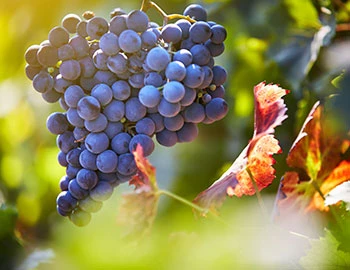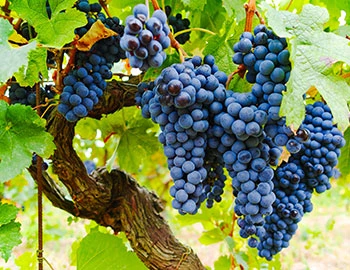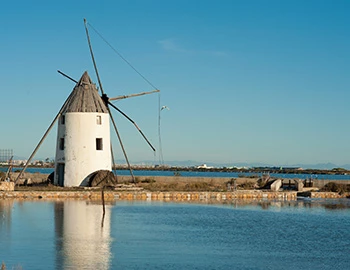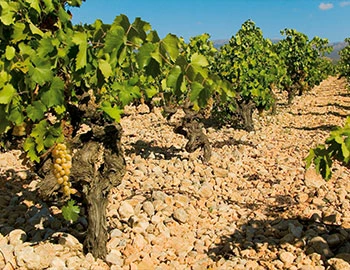
Two Miles 2018
Vino Varietal Yecla, Atlan & Artisan, 750 ml

| Grape variety: | Monastrell, Garnacha Tintorera, Syrah |
| Producer: | Atlan & Artisan |
| Origin: | Spain / Murcia / Yecla |
Description
Pure Spanish joy of life! The Two Miles seduces with its enormously fresh bouquet of cherries and redcurrants, which is accompanied by a fine floral fragrance and a hint of mint. On the palate, it is palatable, balanced, with an inviting fruitiness and soft tannins. Uncomplicated wine enjoyment with tapas, vegetarian cuisine and barbecues.
Attributes
| Origin: | Spain / Murcia / Yecla |
| Grape variety: | Monastrell, Garnacha Tintorera, Syrah |
| Ripening potential: | 2 to 8 years |
| Drinking temperature: | 16 to 18 °C |
| Food Pairing: | Mild Asian dishes, Cold fish dish, dried meat, Spiced grillades, Latin American dishes, Paella |
| Vinification: | fermentation at low temperatures, fermentation in steel tank, biological acid degradation in barrel |
| Harvest: | hand-picking, in small boxes |
| Maturation: | in large wooden barrel/foudre, in used barriques |
| Bottling: | by hand, no filtration |
| Maturation duration: | 12 months |
| Volume: | 15.5 % |
| Note: | Contains sulphites |
Syrah
A hint of pepper
The legend stubbornly persists that the Syrah variety came from the Persian city of Shiraz. Yet, researchers have shown that it is a natural crossing of two old French varieties: the red Dureza from the Rhône Valley and the white Mondeuse blanche from Savoy. Wines from Syrah are gentle and concentrated. They smell of dark berries, violets and liquorice, and amaze with a piquant touch of white pepper. As varietal wines, they are found on the northern Rhone, as in the Hermitage or Côte Rôtie appellations, as well as in Swiss Valais. In the southern Rhône Valley, Syrah is often wedded with Grenache and Mourvèdre. In 1832, a Frenchman brought the variety to Australia, where it became the emblem of the national wine industry. There, the weightiest versions develop with typical notes of tar and chocolate.

Monastrell
Hot-blooded Spaniard
It cannot be hot enough for the Monastrell grape. It grows around the Mediterranean, where the summers are long and hot and the winters mild. At only 200 metres in elevation, or 80 kilometres from the coast, its grapes have problems ripening. It was likely born in the Valencia region. According to written records, it was already counted among the most important varieties in 1460. Its exact origin is thought to be the Camp de Morvedre area. From there, it migrated in the 17th century to Provence, where it was christened Mourvèdre. Its wines are deeply dark, with intense blackberry aromas, rich tannins and moderate acidity. They enter into the most beautiful harmonies with other varieties from the south, such as Garnacha, Carignan or Syrah. The Mourvèdre is the main ingredient of red wines of Bandol; it also flows into the Châteauneuf-du-Pape. On the Spanish Levante coast, it is also pressed solo.

Murcia
Murcia: Home to the Monastrell variety
The city of Murcia is scarcely known outside of Spain; however, with nearly 500,000 inhabitants, it is the powerful center of a rural region. Fruit, vegetable and wine cultivation are still important economic factors here. In the three wine-growing areas located in the autonomous region of Murcia – Bullas, Jumilla and Yecla – the Monastrell variety demonstrates that it can produce wines of varying character.

Spain
Spain – Variety and perfection
“Somewhere in la Mancha, in a place whose name I do not care to remember...,” begins Don Quixote's odyssey.
The most famous part is definitely when Don Quixote thinks windmills are his enemy and wants to fight them – until they nearly kill him. It’s possible there was a bit too much of the La Mancha wine at play. Spanish vines fight for their survival in rugged landscapes, battling fierce drought and rough soils. But they fight well.


